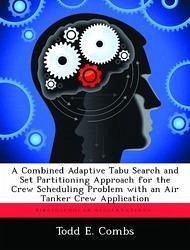Nicht lieferbar

Adaptive Gravitational Gossip in Monitoring the Joint Battlespace Infosphere
Versandkostenfrei!
Nicht lieferbar
Future USAF operations will be heavily dependent on having the "right information" at the "right time", and Joint Battlespace Infospheres (JBIs) are poised to fill that role. To do this, JBIs must be ubiquitous-always accessible, secure and responsive. Of all the literature written regarding JBIs, the most important problem to solve in order to make JBIs work in mobile scenarios are scalability, reliability and adaptability to changing battlefield conditions. This paper explores the use of SBCast, a novel adaptive probabilistic protocol, a delivery mechanism for JBI updates and as a possible s...
Future USAF operations will be heavily dependent on having the "right information" at the "right time", and Joint Battlespace Infospheres (JBIs) are poised to fill that role. To do this, JBIs must be ubiquitous-always accessible, secure and responsive. Of all the literature written regarding JBIs, the most important problem to solve in order to make JBIs work in mobile scenarios are scalability, reliability and adaptability to changing battlefield conditions. This paper explores the use of SBCast, a novel adaptive probabilistic protocol, a delivery mechanism for JBI updates and as a possible solution towards guaranteeing these qualities. It documents tests of SBCast within a simulation environment configured with parameters based on actual military field operations. From these tests, the paper examines SBCast as an enhancer to JBI's ability for overcoming transient network failures while managing different classes of subscribers by available bandwidth and priorities. By using the feedback from SBCast as a middleware layer controller, JBIs would be able to "dial up" traffic for parts of the network and "dial down" traffic in others based on dynamic changes in network congestion or traffic demands. This work has been selected by scholars as being culturally important, and is part of the knowledge base of civilization as we know it. This work was reproduced from the original artifact, and remains as true to the original work as possible. Therefore, you will see the original copyright references, library stamps (as most of these works have been housed in our most important libraries around the world), and other notations in the work. This work is in the public domain in the United States of America, and possibly other nations. Within the United States, you may freely copy and distribute this work, as no entity (individual or corporate) has a copyright on the body of the work. As a reproduction of a historical artifact, this work may contain missing or blurred pages, poor pictures, errant marks, etc. Scholars believe, and we concur, that this work is important enough to be preserved, reproduced, and made generally available to the public. We appreciate your support of the preservation process, and thank you for being an important part of keeping this knowledge alive and relevant.















